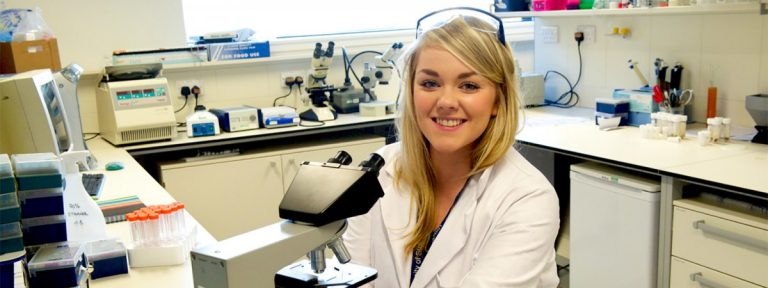
“The important thing in science is not so much to obtain new facts as to discover new ways of thinking about them.” – William Lawrence Bragg
Hailing from the Ukhaa Tolgod – a recently-discovered dinosaur graveyard hidden beneath the sands of the Gobi Desert – the Halszkaraptor escuilliei has fast become a source of global fascination. This ancient beast has been described as semiaquatic and ‘enigmatic’; sporting a swan-like neck, amphibious flippers and Velociraptor-esque claws. Palaeontologists have determined this creature traipsed on land much like a duck but graced the waters like a penguin, challenging everything we thought we knew about Earth-dwelling therapod dinosaurs.
Fast-forward more than two millennia and you will hit the ground in January 2018. Elon Musk and SpaceX are just about to launch the colossal Falcon Heavy. According to the man himself, the destination is Mars orbit, with the billionaire also pledging that the Tesla Roadster will hold a prime position on the flight, beaming the iconic sounds of Bowie’s Space Oddity as it careers through space.
Break through global borders to land in Boston, USA, and here you will bear witness to the 10th annual meeting for Clinical Trials on Alzheimer’s Disease. While it may sound more than a little Sci-Fi, recent tests have legitimately found that infusing the elderly with young blood plasma could reverse the scars of ageing and disease, potentially diminishing the devastating effects of Alzheimer’s and other degenerative illnesses.
What do these three things have in common? They are of course intrinsically linked to the physical science disciplines.

Science forms the backbone of everything we know about both ancient and contemporary society; from chemistry and physics to earth science, biology and beyond – these are the tools of discovery used to translate the natural world.
Even at the height of the digital age, the disparate paths of physical science will never lose their worth, since progress in the technology revolution fundamentally depends on scientific innovation. Every ounce of wisdom the human race has gained is owed to the brains of science past and present, while every possible future development relies solely on the brains of science yet to come.
Many aspects of modern life are marked with disorder and distrust, but one thing we can be sure of is science’s ability to innovate and inspire. Whether it is in the world of tech, medicine, business, physics, design or the environment, science innovation is instrumental to knowledge acquisition and discovery.
This is why employers are so keen to recruit graduates equipped with the expertise and outlook needed to advance. More and more, business leaders are acknowledging that a culture of innovation will motivate growth, seeking the fresh ideas and concepts that innovative physical science graduates bring to their teams. This is why a degree in the field remains relevant and rewarding, with physical science students breaking new ground in the global knowledge frontier.
Here are five universities that excel in physical science studies…
COLLEGE OF PHYSICAL AND APPLIED SCIENCES, BANGOR UNIVERSITY – UK
Bangor University is the home of research excellence and the launching pad for many a long and successful career. Recognised for its cutting-edge research and exceptional facilities, Bangor’s work has had a major impact around the world and has been integral in shaping modern thinking in a number of arenas.

Powered by small class sizes, unparalleled research opportunities and a Gold TEF teaching standard, students here receive an education of the highest form, standing at the vanguard of exploration in electronic engineering, computer science and chemistry-based disciplines.
Bangor’s history of teaching chemistry spans more than 130 years, offering a warm and dynamic environment specifically-designed to nurture the most influential scientists of tomorrow’s world. The greatest evidence of this school’s resounding excellence lies in the success of its students.
Students at the School of Chemistry at Bangor University get opportunities to play a very real part in the development of scientific knowledge. Undergraduate chemistry students co-authored a recently published peer-reviewed scientific paper, an achievement usually the preserve of lecturers, researchers and post-graduate students. This project, in collaboration with a research group in Poland, investigated the molecular structure of a compound from a toxic algae and prepared similar molecules in the lab. By looking at the molecular structure of compounds isolated from toxic algae, the work carried out as part of one undergraduate project could have potential applications in cancer treatment.
SCHOOL OF ARTS & SCIENCES, DARTMOUTH COLLEGE – USA
Offering intimate, one-to-one teaching and real-world opportunities, Dartmouth instils a deep-held love of learning among all who walk through its doors, preparing them for a lifetime of leadership and vision that allows them to thrive anywhere around the globe.

Located in Hanover, New Hampshire, Dartmouth offers natural beauty and a wealth of outdoor activities in a region with high-tech start-ups and easy access to Boston and New York.
Harbouring the Departments of Biological Sciences, Chemistry, Computer Science, Earth Sciences, Physics & Astronomy, and more, Dartmouth’s School of Arts & Sciences represents the perfect base for anyone hoping to enter the physical science field.
“Dartmouth’s chemistry department combines the personalized instruction and mentoring of a small college with the expertise of a research university,” the faculty website explains. “We welcome prospective undergraduate majors and Ph.D. candidates, as well as other students interested in chemistry, the central science.”
FACULTY OF SCIENCE, UNIVERSITY OF STRATHCLYDE – UK
Standing among the UK’s Top 20 research-intensive institutions, the University of Strathclyde’s many experts are constantly breaking through boundaries, developing innovative and practical solutions to the many problems of today.
Here, physical science programmes perfectly blend theoretical understanding with a look toward modern application, granting graduates the expertise required by a complex world.

Strathclyde’s Department of Pure and Applied Chemistry provides a comprehensive range of degrees that cover the realms of drug discovery, teaching and forensic science.
“If you’re thinking of studying chemistry, I feel the Pure & Applied Chemistry Department at Strathclyde is one of the best, with a great balance of theoretical and practical chemistry taught by experienced and engaging lectures,” says Claire Hobday, student of Strathclyde’s MChem Chemistry programme. “The amount of practical chemistry involved in the degree is great.”
DIVISION OF NATURAL SCIENCES, COLUMBIA UNIVERSITY – USA
Columbia University has been a leader of education, not just in the US but throughout the world, for more than 250 years.
The Division of Natural Sciences is nestled within the Faculty of Arts and Sciences, delivering world class courses in Astronomy, Biology, Chemistry, Earth Sciences, Ecology, Physics and everything in between.
“Columbia’s name and stature are indelibly linked to the eminent and immensely gifted academics that form the Faculty of Arts and Sciences,” says David Madigan, Dean of the Faculty. “With 14 Nobel Laureates, 48 members of the National Academy of Sciences and 78 members of the American Academy of Arts and Sciences, our faculty is among the most recognized in the world.”
The Department of Chemistry is known to be one of the most prominent institutions in the world in terms of chemical research. Home to globally-reputed faculty, a top-ranked graduate programme, and state-of-the-art research facilities, science here is both collaborative and interdisciplinary, promoting excellence in research and teaching from students and staff alike.
FACULTY OF SCIENCE, UNIVERSITY OF SHEFFIELD – UK

This institution stands as a world Top 100 university, serving as a platform from which students can learn from pioneering academics in a setting that has come to be known as the nation’s leading student city.
Encompassing seven departments that span the core science subjects of biology, chemistry, physics, mathematics and psychology, Sheffield allows students to understand themselves and gain a comprehension of their position in the universe.
Here, staff are drawn from all over the world, conducting research that remains at the cutting edge. The faculty’s activities are set to tackle the greatest issues of our time, as well as to gain insight into disease and behaviour, advanced robotic technologies, mapping distant galaxies and so much more.
“By completing one of our research degrees (MRes, MPhil and PhD),” the faculty website notes, “our students learn all the skills a professional scientist needs, becoming advocates for their research who make a difference both within and beyond their global network of colleagues.”
*Some of the institutions featured in this article are commercial partners of Study International
Liked this? Then you’ll love these…
Leading UK Universities for Computer Science
Why do international students choose to study at Bangor University?







